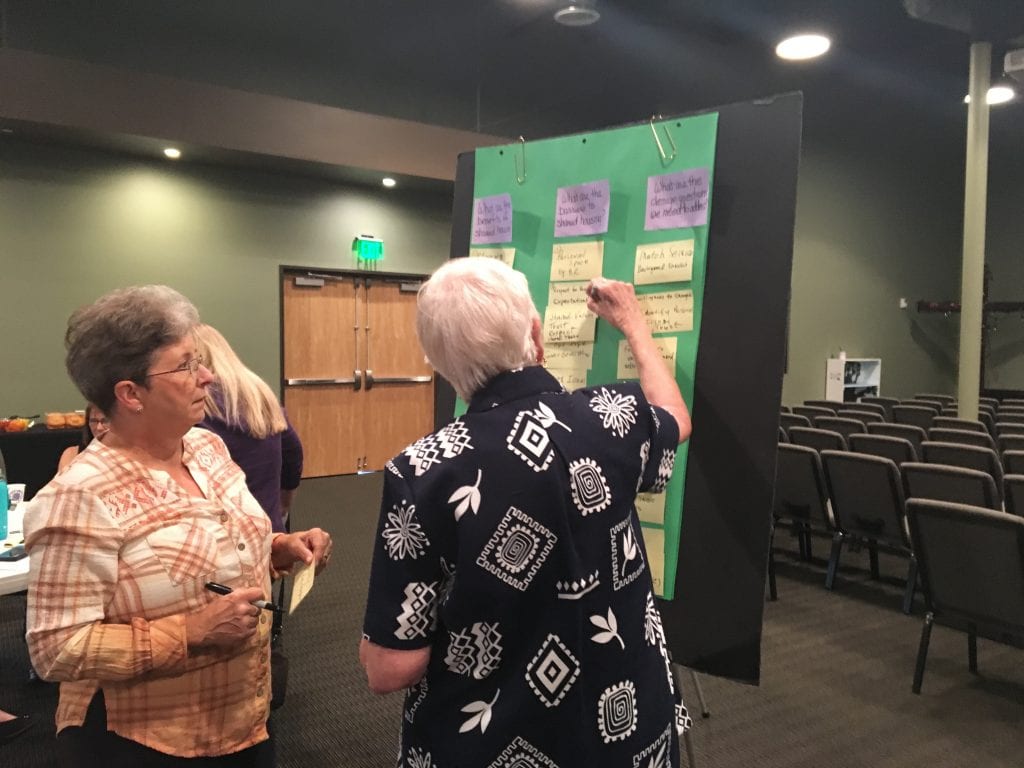Sisters in Time, a collaborative effort between local agencies to get women connected with roommates and affordable housing, held their first public forum on Wednesday.
The group of about 20 was comprised of women who needed housing and women who wanted to help.
“If this wasn’t a problem, we wouldn’t be here,” Bridge to Home Board President Peggy Edwards said. “It seems like for the most part, this is viable.”
Renting is so expensive in Santa Clarita that a single person would have to earn over $26 an hour to afford a two-bedroom apartment, Edwards said.
The women all seemed to agree that addressing the affordable housing crisis by getting roommates was a good idea. Not one of them spoke about the lack of a need or desire for this sort of program.
Breaking into focus groups, the women discussed the benefits, barriers and unresolved questions they had regarding shared housing.

Attendees dove straight into how to go about this process practically, citing a need to match roommates by living style and common interests.
“We can set up a basic sort of guideline and then negotiate finer details,” former planning commissioner Diane Trautman said. “It is about negotiating the technical aspects of this.”
Whether someone smokes, has a pet, likes to watch television at night or eats the same food seemed to be larger concerns to attendees.
“A difference in lifestyle I think could be a huge barrier,” Bridge to Home Director of Programs Chris Najarro said.
Rules for having family over, bed times and cultural differences ought to be considered when matching roommates, according to Najarro.
Maintaining a sense of privacy is major concern for senior women, especially regarding having one’s own bathroom, according to Senior Center Director of Volunteers, Recreation and Education Robin Clough.
“Right now we just want to make sure none of our seniors are homeless,” Clough said. “The seniors I speak to would almost prefer to be homeless than to not have their own space.”
Representing the Canyon Country Senior Apartments Community Tenant Association, Virginia Kennelly said it will be important to negotiate with landlords to ensure seniors are treated fairly.
“Some of the complexes, if you have a roommate, they want to jack up the rent prices,” Kennelly said.
Negotiating rental contracts and discussing available parking spaces should be at the forefront of these conversations, Kennelly said.
One group emphasized the need to look for “hidden housing,” such as rooms for rent in homes, instead of traditional apartments.
Women also discussed the need for a sort of residential advisor to touch base with roommates to ensure the arrangement is running smoothly and resolve any conflicts.
If there are problems that cannot be resolved, some attendees suggested devising an exit plan to help women find another place to live.
Mostly, the women were looking to live with someone they could depend on, according to Jolynn Burt.
“We’re looking out for each other and making sure somebody has our back,” Burt said. “That is huge, I think.”








